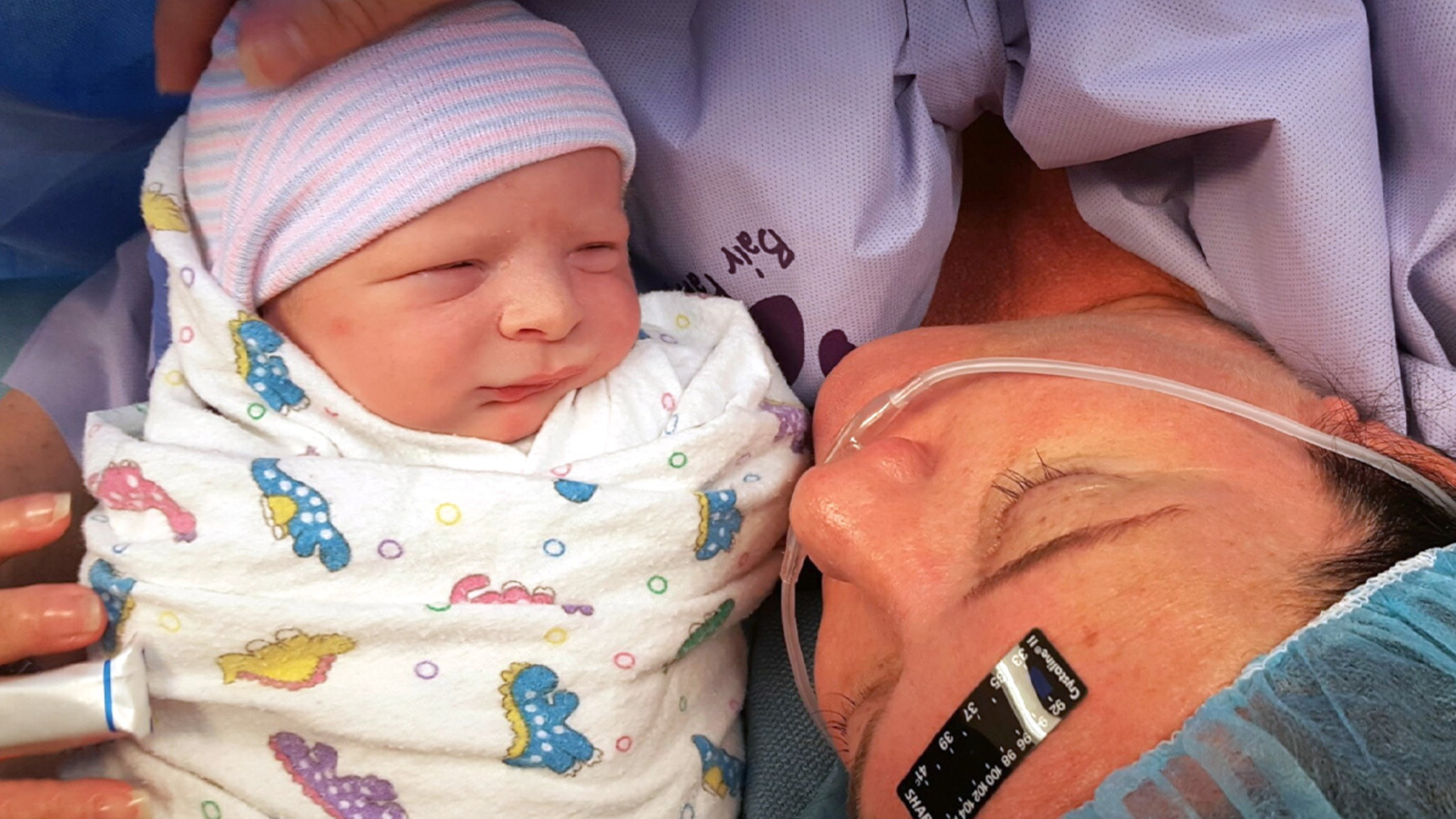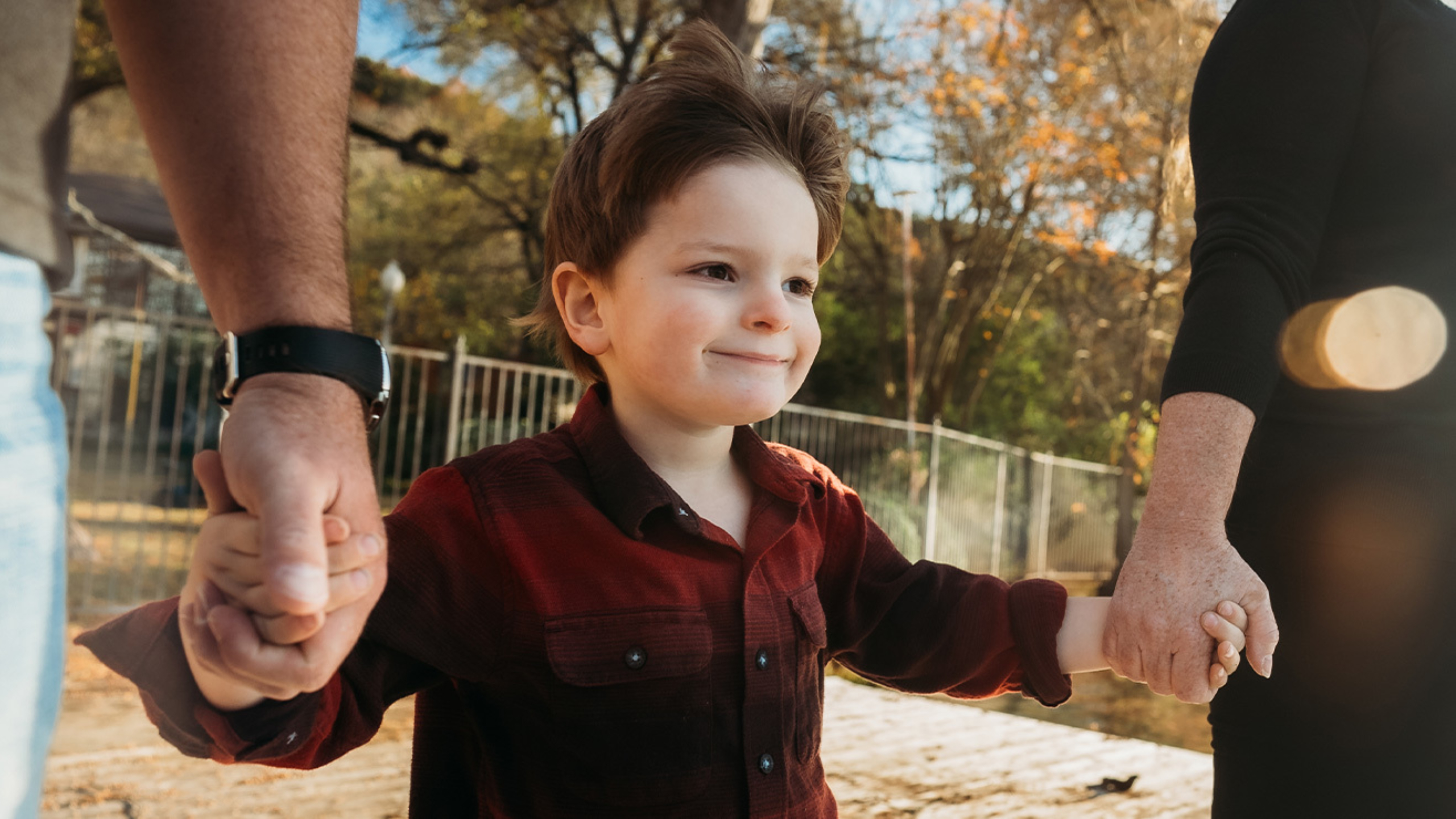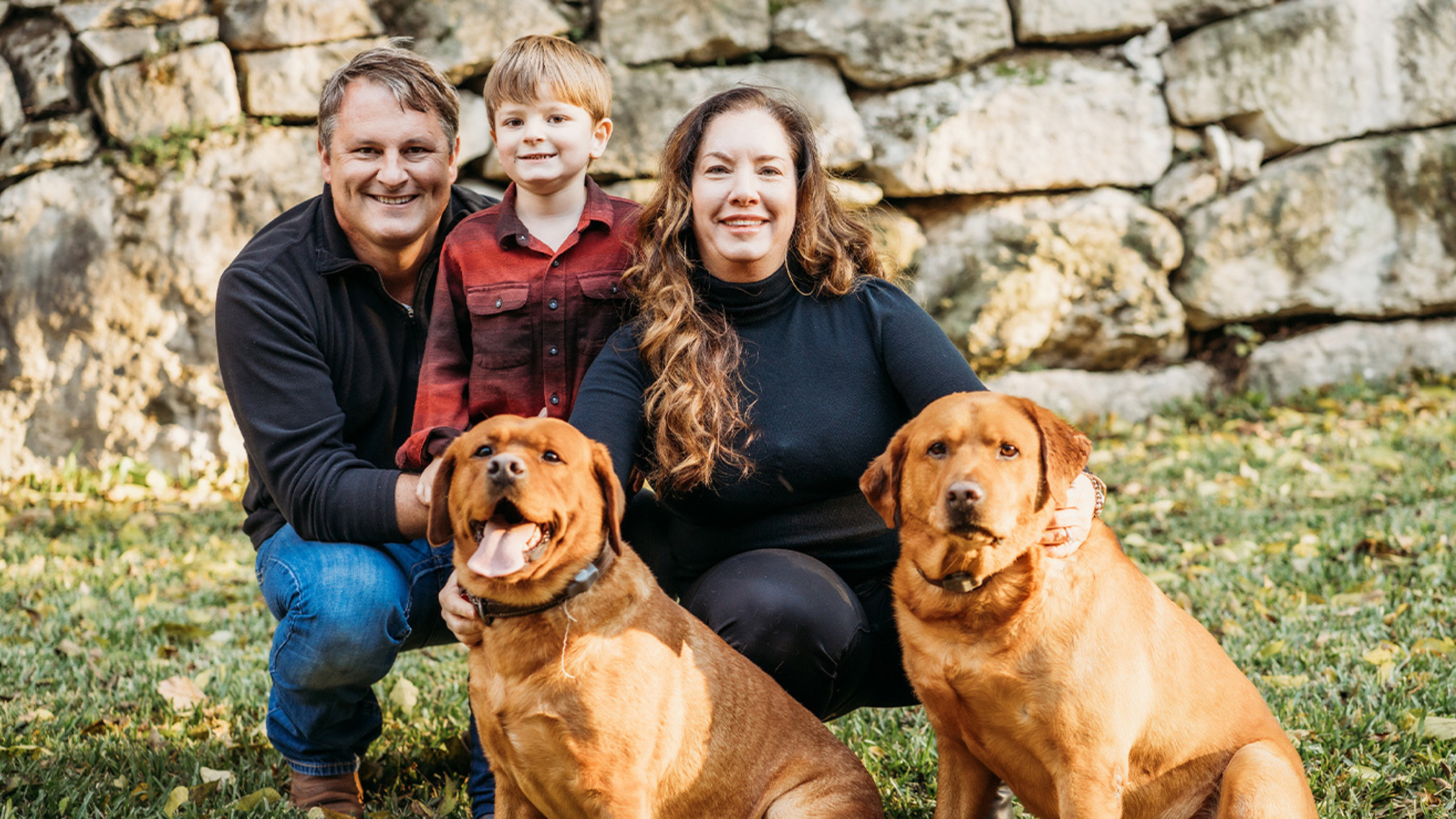Healing Small Hearts to Ensure Big, Bright Futures
One family’s story about how they were prepared to travel anywhere across the nation to make sure their son received the best care possible and ended up finding a world-class pediatric cardiac care team right here in Central Texas
Reviewed by: Lori and Daniel Reeves
Video by: Matthew Hooker
Written by: Lauryn Feil
Like most 4-year-old boys, Levi is energetic, funny, and extremely adventurous. His parents, Lori and Daniel, have been in awe of his intelligence and his passion for building for as long as they can remember. Lori and Daniel were both born and raised in Central Texas and are proud to call Austin home. They have enjoyed being a part of the Austin community and experiencing its extensive growth that has occurred over the last few decades. More recently, they have developed a greater appreciation for Austin’s ever-expanding medical district that is home to some of nation’s top leaders in health care.
Levi was born with a ventricular septal defect, one of the more common congenital heart defects. It occurs when the ventricular septum, or the wall that divides the two ventricles (lower chambers) in the heart, does not fully develop during pregnancy, leaving a hole. This small hole allows oxygen-rich blood in the left ventricle to mix with the oxygen-poor blood in the right ventricle, causing added strain on both the heart and the lungs. The exact cause of a ventricular septal defect remains unknown.
“The day I gave birth is when the doctors told me Levi had a heart murmur, and we were just advised that the best course of action at the time was to keep an eye on it. We were told to continue seeing a cardiologist to check on his heart, that this condition was fairly common, and he may grow out of it. So, we did exactly that,” says Lori.

After Levi was born, his doctor noticed he had a heart murmur, which are extra sounds heard throughout the cardiac cycle due to increased blood flow. For children diagnosed with a heart murmur, a recommendation to see a pediatric cardiologist is typically made, and in some cases, such as Levi’s, routine appointments will be set to monitor the situation. For children born with a ventricular septal defect, the defect will sometimes close on its own during early childhood as the child develops further and the heart grows larger. In cases such as these, no intervention is needed to fix the problem. However, as in the case of Levi, if the hole does not close fully on its own, surgery is often necessary to prevent the rise of health problems later in life, such as heart failure, pulmonary hypertension, cardiac arrhythmia, or stroke.
“It wasn’t until Levi was 3-years-old that our cardiologist mentioned surgery as a treatment option. Surgery always felt like this looming cloud over us because here we had this robust, energetic little boy with no limitations set on his life, but he had this heart condition that needed to be fixed. I remember it was New Year’s Day 2020 and Levi was three-and-a-half-years-old when our cardiologist called and said that he had reviewed Levi’s case with his colleagues and they thought he was a good candidate surgery,” says Lori.
As with most parents who find themselves in a similar situation, Lori and Daniel became determined to learn as much as possible about the surgery Levi’s doctor proposed and who might be the best team of doctors in the country to treat their son. Prepared to travel anywhere in the nation, they reached out to their contacts in the medical field, spoke with parents of other children with similar conditions, and sought recommendations from healthcare professionals all across the country. To their pleasant surprise, it soon became clear that the team they were looking for was located right here in Austin.

“We talked to a lot of people and we did a lot of research, but when you say ‘Charles Fraser,’ people immediately know who he is. I think he has the most notoriety of anybody in his business in the country, and probably in the world,” says Daniel.
Lori and Daniel met with UT Health Austin pediatric and congenital heart surgeon Charles Fraser, MD, who serves as Chief of Pediatric and Congenital Heart Surgery for the Texas Center for Pediatric and Congenital Heart Disease, as well as additional members of his team to discuss both Levi’s case and the surgery in-depth. Impressed by Dr. Fraser and his team’s knowledge and confidence they immediately felt at ease and decided this was the best fit for Levi and their family.
“I felt very comfortable talking to [Dr. Fraser], and he was very transparent about the entire process,” says Daniel. “His overall confidence in himself and his team gave me confidence. During the meeting, he had a white board and was able to lay out the procedure for us and answer any and all of the questions we had. He said he had done thousands of these surgeries and that there was a less than 1% chance that any problems would occur, and we felt very comfortable with those odds.”
Lori and Daniel began to feel as prepared and as confident as any parent in this situation could be and even worked with Levi to help him understand his heart condition and how it was going to be repaired. To their disappointment, Levi’s surgery that was scheduled in April 2020 was postponed until later in the year due to the rising COVID-19 cases in the United States. Looking back, Lori and Daniel are glad that were able enjoy their summer with Levi and appreciative of the additional time they had to ensure they were both mentally and spiritually ready for the upcoming procedure.
When the day of Levi’s surgery finally arrived, emotions were high for Lori and Daniel, while they anxiously awaited the completion of Levi’s surgery. During their stay, they were pleasantly surprised by the level of support they received in which they were given their own private waiting room, a nurse provided updates on Levi’s progress in the operating room every hour, and the staff made sure all of their needs were met to optimize their comfort.

“I didn’t realize until a few days after Levi’s surgery, after it was all over and it finally soaked in, how much of my mental space was occupied by this process,” says Daniel. “In retrospect, it was 10% as difficult as I thought it was going to be. Levi was never in any pain; he was out of the hospital within four days, and recovered well at home for a few weeks after that. I really think Dell Children’s is a world class facility filled with the best people I think anyone could ever have caring for your child.”
“We received a lot of nurturing support and the entire team knew how to guide us through every step of the process,” says Lori. “Having this level of excellence in health care right here in Austin makes me very proud of the city that I was born and raised in.”
Levi is several months post-op and has healed beautifully with no issues. His family is overjoyed to have him happy and healthy with a promising future ahead. To learn more about the Texas Center for Pediatric and Congenital Heart Disease, visit here.